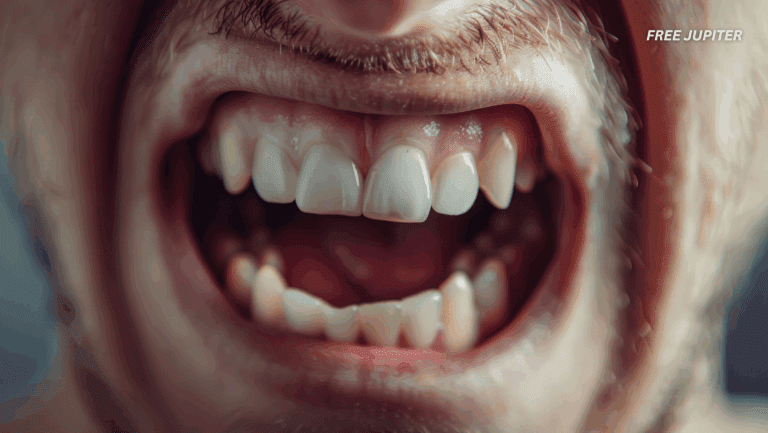We all know sleep is important. It’s what keeps us from turning into cranky, caffeine-guzzling zombies. But what if sleep—especially the deep kind—does a whole lot more than recharge your energy? What if it’s quietly protecting your brain from the slow creep of Alzheimer’s disease?
That’s exactly what a fascinating new study from researchers at UC Berkeley, Stanford, and UC Irvine suggests. It turns out that deep sleep might act like a night shift janitor for your brain—cleaning, organizing, and potentially holding off the very symptoms that make Alzheimer’s so devastating.
Let’s unpack this science in a way that won’t put you to sleep (ironically).
Alzheimer’s 101: What’s Going on in the Brain?
Alzheimer’s disease is the most common form of dementia, a condition that slowly chips away at memory and cognitive abilities. Scientists still haven’t figured out the exact cause, but they’ve identified two usual suspects: amyloid-beta and tau proteins. When these proteins start clumping together in the brain, they can form sticky plaques and tangles that disrupt communication between brain cells.
But here’s the twist: these proteins don’t show up overnight. They can start accumulating decades before someone shows any symptoms at all. Think of them like silent intruders setting up camp while your brain tries to go about its business.
Enter Deep Sleep: The Brain’s Nightly Reset Button
Sleep isn’t just one long nap—it comes in stages. One of the most crucial is called non-REM slow wave sleep, aka deep sleep. This stage is when your brain truly powers down. Your heartbeat slows, your breathing becomes more regular, and your body gets to work repairing tissues. More importantly, your brain starts its nightly cleanup routine.
During deep sleep, your brain clears out metabolic waste, including those pesky amyloid-beta proteins. Imagine your brain as a city, and deep sleep is when the garbage trucks come out. If you cut the night short or your sleep is shallow, the trash piles up—and that’s not good news for your neurons.
Read more: According to Sleep Experts, Changing This One Afternoon Habit Can Help You Sleep Better
What the Study Found: Deep Sleep as a Cognitive Lifeline
In this recent study, researchers examined 62 older adults who were cognitively healthy—meaning their memory and thinking skills were still sharp—but some of them already showed signs of Alzheimer’s-like changes in the brain. Brain scans revealed that some participants had high levels of amyloid-beta, while others had less.
The researchers monitored their sleep (specifically brain waves) and then asked them to perform memory tests the following day.
Here’s the kicker: people with high amyloid-beta levels who got more deep sleep performed significantly better on the tests than those who didn’t get much deep sleep. In contrast, people with low amyloid-beta levels weren’t as affected by how much they slept.
In other words, deep sleep seemed to act like a buffer. Even in brains that were already showing early signs of Alzheimer’s, good sleep helped keep memory sharp.
So… Is Poor Sleep a Cause or a Symptom of Alzheimer’s?
Here’s where it gets a bit tricky. Scientists know there’s a connection between bad sleep and Alzheimer’s—but it’s a chicken-and-egg situation. Does poor sleep cause Alzheimer’s? Or does Alzheimer’s make it harder to sleep?
The answer might be “yes” to both.
Bad sleep seems to raise the risk of Alzheimer’s by allowing amyloid-beta to accumulate. At the same time, amyloid-beta can disrupt sleep by interfering with how the brain cycles through its sleep stages. This feedback loop is part of what makes Alzheimer’s such a tough disease to crack.
Still, the UC Berkeley team believes we shouldn’t throw up our hands in defeat. Deep sleep is one part of the cycle that we can actually work on—and that’s encouraging.
Why Sleeping Pills Might Not Be the Answer
If deep sleep is so important, you might be tempted to reach for sleeping pills. But not so fast.
Some studies suggest that sleep medications can help lower levels of amyloid-beta in the fluid that surrounds your brain. That sounds promising… until you consider the full picture.
Most sleeping pills don’t increase deep sleep. In fact, they often lead to lighter, more fragmented rest—the kind where your brain doesn’t really get to that restorative, garbage-clearing stage. Plus, many pills come with side effects, including grogginess, dependency, and even increased risk of falls in older adults.
So while they might help you doze off, they aren’t always helping your brain in the way it really needs.
Read more: Heart Attack Deaths Are Way Down—But Something Else Us Killing Us Instead
Sleep Is Just One Piece of the Puzzle
The study also reminds us that sleep is just one factor among many that affect brain health. Other things like education, physical activity, and staying socially connected are all linked to better cognitive resilience in old age.
Still, deep sleep stands out because it’s a modifiable factor—meaning it’s something we can improve, no matter our background or genetic risk. As lead researcher Zsófia Zavecz put it, just because your brain shows signs of Alzheimer’s doesn’t mean you’re destined for cognitive decline. “One of those protective factors,” she emphasized, “is sleep—and specifically, deep sleep.”
Want Better Deep Sleep? Start With These Simple Tweaks:
You don’t need a lab or a fancy device to start improving your deep sleep. Here are some tips straight from the researchers and sleep scientists:
🕒 Cut caffeine after lunch. Coffee might feel like your best friend, but it overstays its welcome. Caffeine lingers in your system for hours and can interfere with deep sleep even if you fall asleep easily.
🏃♀️ Move your body. Regular exercise, especially in the morning or early afternoon, can help regulate your sleep cycle and promote deeper rest.
📵 Power down screens. Blue light from phones, tablets, and TVs tricks your brain into thinking it’s still daytime. Try turning them off at least an hour before bed.
🛁 Take a warm shower. It raises your body temperature, which then drops as you cool off—signaling to your body that it’s time to wind down.
🛌 Keep a sleep routine. Going to bed and waking up at the same time each day—even on weekends—can train your brain to settle into deep sleep more easily.
Read more: Scientists Reveal The Minimum Amount Of Exercise You Need To Offset Sitting All Day
Final Thoughts: Sleep Is More Than Just Rest—It’s Brain Insurance
While Alzheimer’s is still a complex puzzle, this research offers something rare: agency. It reminds us that while we can’t change everything about our brains, we can create the conditions for better brain health—starting with something as natural as sleep.
The takeaway is simple but powerful: deep sleep matters. It may not cure Alzheimer’s, but it could help delay or soften its impact. And in a world where millions of people are affected by memory loss, that’s no small thing.
So tonight, when you climb into bed, think of it not as “just going to sleep,” but as investing in your future brain. Turn down the lights, cozy up, and drift into the kind of slumber that just might be one of your best defenses against aging.
And hey—if your brain could thank you, it probably would.










